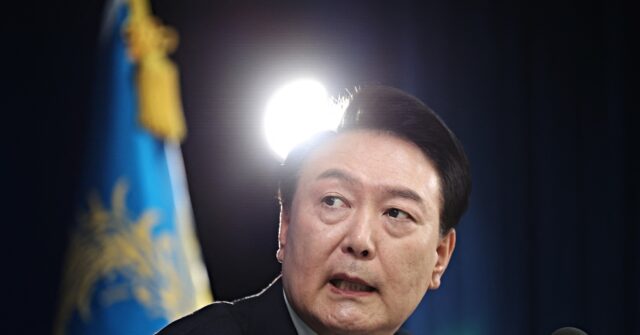The recent political turmoil in South Korea surrounding President Yoon Suk-yeol has escalated dramatically following his controversial declaration of martial law. Yoon, the leader of the People Power Party (PPP), made the announcement under the pretense of protecting the Republic of Korea from alleged threats posed by North Korean communist forces. He accused the National Assembly of being infiltrated by anti-state elements benefiting North Korea. However, Yoon failed to provide any substantial evidence to support these alarming claims, which raised concerns about the legitimacy of his actions. The martial law decree, which effectively restricted political activities, was met with swift resistance from lawmakers, leading to its swift collapse just hours after its announcement. The National Assembly convened against military opposition, illustrating a robust pushback against Yoon’s extraordinary measures.
In the aftermath of the martial law crisis, the political landscape within the PPP has shifted dramatically. Han Dong-hoon, the party leader, openly expressed that Yoon should be immediately suspended from his duties to ensure national stability and security. Han’s remarks underscore a growing rift between the president and his party officials, prompting discussions regarding potential impeachment proceedings. The opposition, primarily led by the Democratic Party, has initiated these impeachment proceedings in the National Assembly. For the impeachment to be successful, a two-thirds majority is required, which translates to eight defections from Yoon’s own party members, amplifying the internal dissent within the PPP.
Yoon’s silence following the martial law announcement has not dimmed the urgency of this political crisis. Meetings with PPP leadership have failed to alter the consensus against him, as the party, despite being the ruling body, quickly condemned the martial law declaration. This withdrawal of support from within his party, along with impending impeachment, indicates a critical loss of governmental control and legitimacy. Han emphasized the need for Yoon to be held accountable, aligning himself with calls for an investigation into those who advised the martial law declaration, particularly the defense minister who initially proposed it.
Amidst the chaos, unverified rumors started spreading that Yoon was considering another martial law declaration. This led to public panic and an unequivocal denial by military leaders, including Army Commander Kwak Jong-keun, who pledged that the military would disobey any such orders from Yoon. This illustrates a significant friction not only between the government and its constituents but also within the military establishment itself. Kawak’s comments revealed a discontent with Yoon’s leadership, suggesting that the military’s commitment to following his orders was far from guaranteed; they had previously only partially executed the martial law directive.
The situation escalated further with reports of Yoon allegedly ordering the arrest of key opposition figures during the brief martial law phase. Hong Jang-won, South Korea’s National Intelligence Service deputy director, indicated that Yoon had instructed to seize opposition leaders, which raises serious concerns about authoritarian intentions. These revelations have only heightened the stakes for Yoon as the National Assembly prepares to vote on his impeachment. The internal tension within the ranks of the PPP, coupled with Yoon’s increasingly radical approaches, suggest that his presidency is hanging by a thread.
As the National Assembly gears up for a pivotal vote on Yoon’s impeachment, the implications could be profound for South Korea’s political future. The willingness of PPP members to support impeachment reflects a significant divergence from Yoon’s leadership and symbolizes increasing assertiveness by democratic institutions in the face of potential authoritarianism. The unfolding events, characterized by rapid political changes and tensions, will likely define the trajectory of South Korean politics for years to come, revealing the vulnerabilities of political leadership amidst crises and highlighting the importance of accountability within democratic governance.

